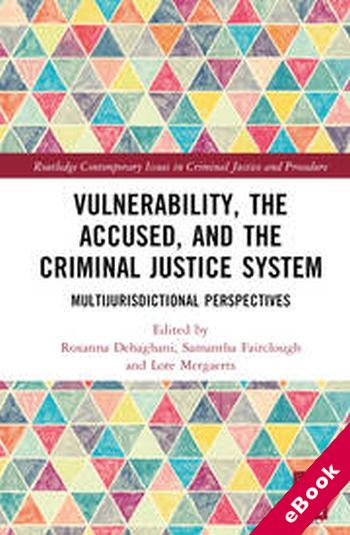
The device(s) you use to access the eBook content must be authorized with an Adobe ID before you download the product otherwise it will fail to register correctly.
For further information see https://www.wildy.com/ebook-formats
Once the order is confirmed an automated e-mail will be sent to you to allow you to download the eBook.
All eBooks are supplied firm sale and cannot be returned. If you believe there is a fault with your eBook then contact us on ebooks@wildy.com and we will help in resolving the issue. This does not affect your statutory rights.
This book is concerned with the vulnerability of suspects and defendants in criminal proceedings and the extent to which the vulnerable accused can effectively participate in the criminal process.
Commencing with an exploration of how vulnerability is defined and identified, the collection examines and analyses how vulnerability manifests and is addressed at the police station and in court, addressing both child and adult accused persons. Leading and emerging scholars, along with practitioners with experience working in the field, explore and unpack the human rights and procedural implications of suspect and defendant vulnerability and examine how their needs are supported or disregarded. Drawing upon different disciplinary approaches and a range – doctrinal, theoretical, and empirical – of analyses, this book offers unique insights into the vulnerability and treatment of the criminal accused. In bringing together a diverse range of perspectives, the book offers key insights into the recognition of and responses to vulnerability among suspect and defendant populations in criminal justice systems across European jurisdictions.
The book will be a valuable resource for academics, practitioners, and policymakers interested in how vulnerable suspects and defendants are protected throughout the criminal process, and those working in the areas of Law, Criminology, Sociology, Human Rights, and Psychology.